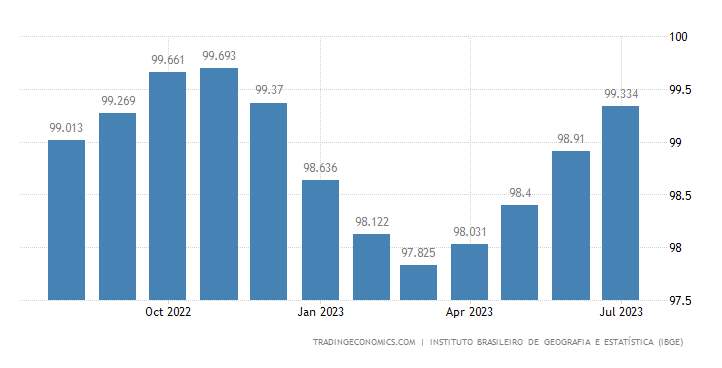Brazil is renowned for its warm climate and natural resources, which have enabled it to become a global leader in various sectors, including:
- Agriculture
- Energy
- Mobile App Development
- Financial Tech
These diverse market opportunities attract global businesses, offering a promising landscape for companies looking to expand their operations in Brazil.
Investors in agriculture and natural resources can tap into a substantial and burgeoning market, as well as a plethora of resources and technologies. In the mobile app and fintech sectors, there is potential to develop innovative products and services, capitalizing on Brazil’s large population and access to technology.
Furthermore, Brazil’s energy sector presents potential investments in both renewable and traditional energy sources, as the country is a major exporter of energy and home to numerous major energy companies.
Agriculture and Natural Resources
Brazil has sustained strong agricultural output, despite the ramifications of the Global Financial Crisis. The country’s vast agricultural resources and favorable climate make it an attractive destination for agribusiness investments. Companies with access to new technologies, equipment, and services that can modernize and increase the efficiency of the agricultural sector have significant commercial opportunities in Brazil.
Moreover, Brazil’s mining sector presents potential for commercial success, which may be more attainable than in other more saturated markets. The new government appears to be supportive of the mining industry, further reinforcing the potential for growth and investment in this sector.
Mobile Apps and Financial Tech
In 2023, the mobile app and fintech sectors in Brazil are anticipated to provide ample opportunities for global companies. Here are some key points to note:
- Brazil’s fintech market is expected to continue growing.
- The digital investment market in Brazil is projected to grow by 14.13% from 2023 to 2027.
- Collaboration between US fintechs and Brazilian counterparts in areas like payment and banking presents an exciting possibility for both countries.
Brazil, a key player in South America, is recognized as the largest fintech hub in Latin America, with a vibrant tech scene and various startup opportunities. The rapid growth in mobile app development and financial technology sectors presents lucrative opportunities for foreign companies looking to enter the Brazilian market and capitalize on this expanding industry.
Energy Sector
Brazil’s energy sector, particularly renewable energy, offers potential for growth and investment. The country has various energy sources available, such as hydropower, biomass, and solar energy, contributing to its thriving renewable energy sector. As the world becomes more environmentally conscious, renewable energy sources are becoming increasingly important, making Brazil an attractive destination for investment in this field.
Additionally, Brazil is a major exporter of energy and home to numerous major energy companies. This presents potential investments in both renewable energy sources, such as wind and solar, and traditional energy sources, like oil and gas. The diversity and potential for growth in Brazil’s energy sector make it a lucrative market for foreign companies looking to invest in this industry.




